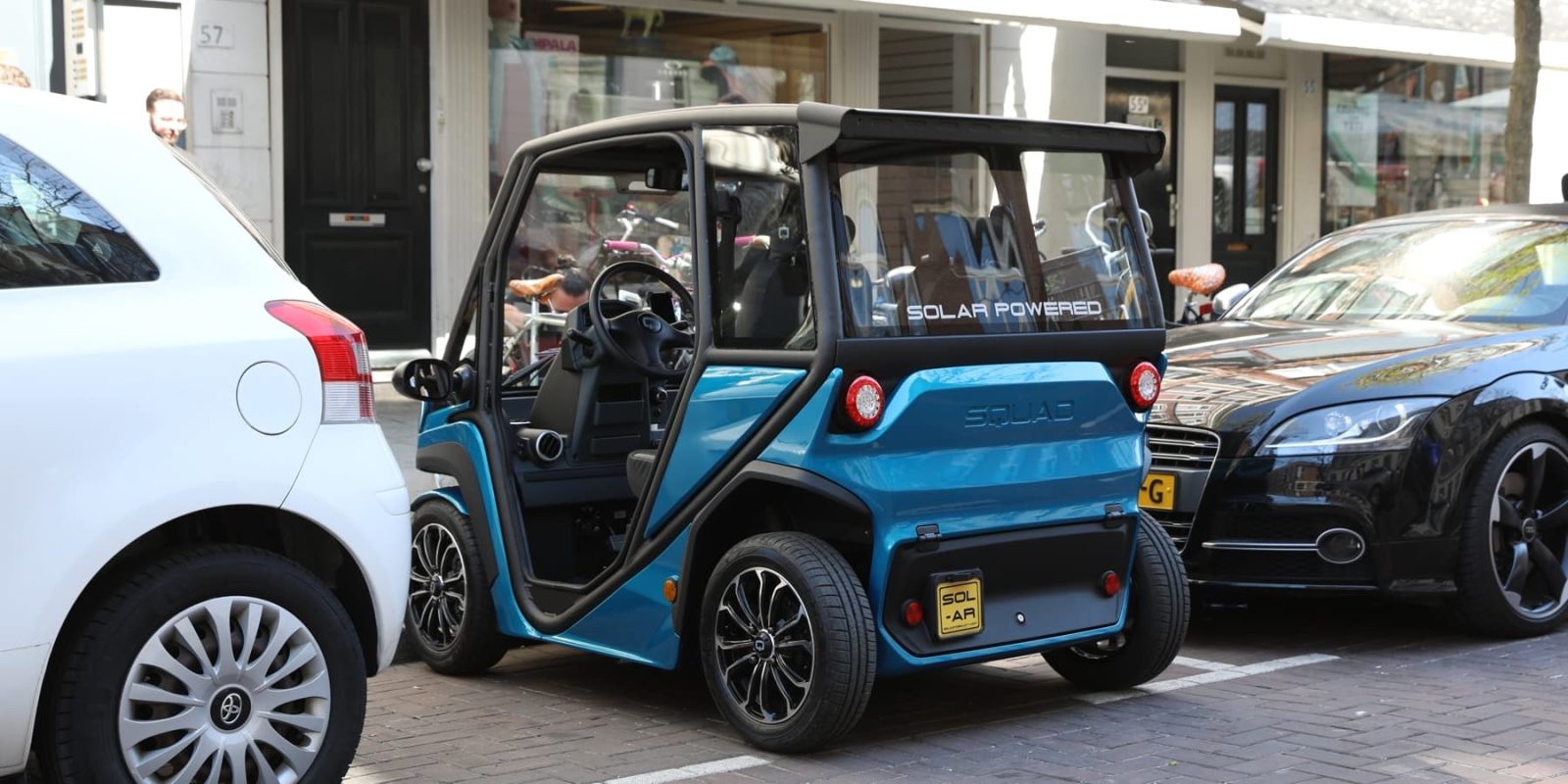
The US’s electric micro-car market is rather limited compared to Europe and Asia, but the Dutch company Squad Mobility hopes to change that. The startup has announced that its solar-powered EV is now available for pre-order ahead of US entry.
Announcing today a special edition of the vehicle known as the “Solar Buggy”, the small format EV is described by the company as “a compact and affordable solar car that charges itself on direct solar energy through an integrated solar panel on the roof.”
Technically, it’s not a “car” in the traditional sense, at least not in the US, where it will fall under Low-Speed Vehicle (LSV) designation that limits its speed to 25 mph (40 km/h) in order to attain street-legal status at the federal level.
It is unclear if the vehicle has already passed US homologation certification for street-legal status, though the company has plenty of time left before its planned 2025 market entry.
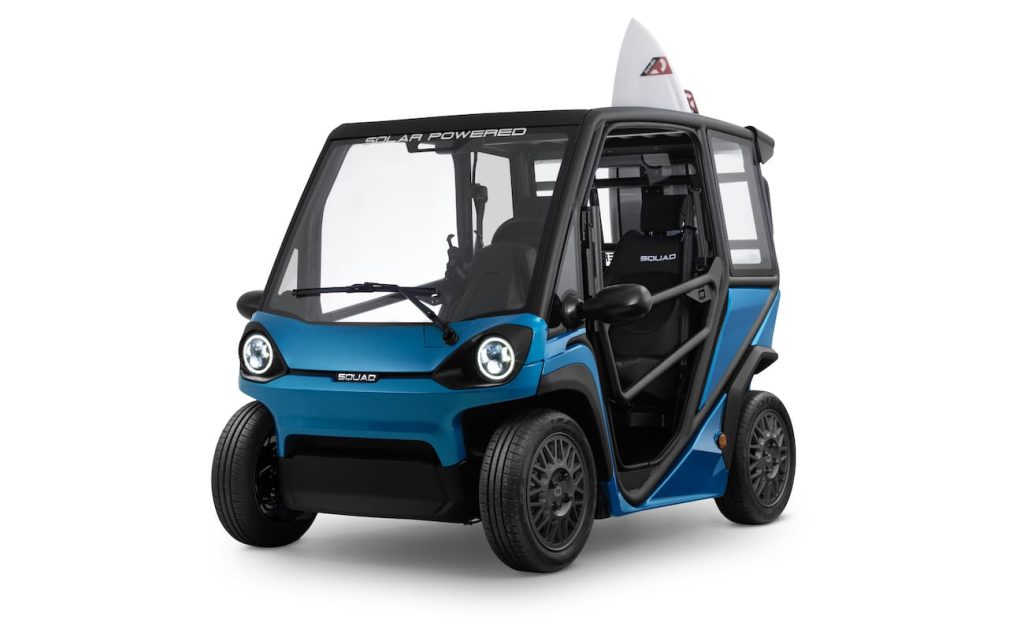
In Europe, two versions of the vehicle are available with higher performance. The company is working on bringing the two-seater Solar City Car to production in a 28 mph (45km/h ) L6-category variant and a 43 mph ( 70km/h) L7-category variant. Squad Mobility also has plans for a longer, four-seater L7-category variant and a cargo version.
One key differentiator for Squad Mobility is the company’s focus on solar power as a form of range extender for the vehicles. The roof-mounted solar panel is said to add up to 13.6 miles (22 km) of extra range on sunny days in the company’s domestic market of the Netherlands. When tested in Las Vegas, the solar output was nearly 50% higher, adding up to 19.2 miles (31 km) of range per day.
The vehicles feature four swappable and portable batteries that together offer an all-electric range of 62 miles (100 km), even without factoring in any additional charge from solar power. With an average solar range of 13 miles per day in a city such as Las Vegas, Squad Mobility believes that most users will find that charging is not even necessary.
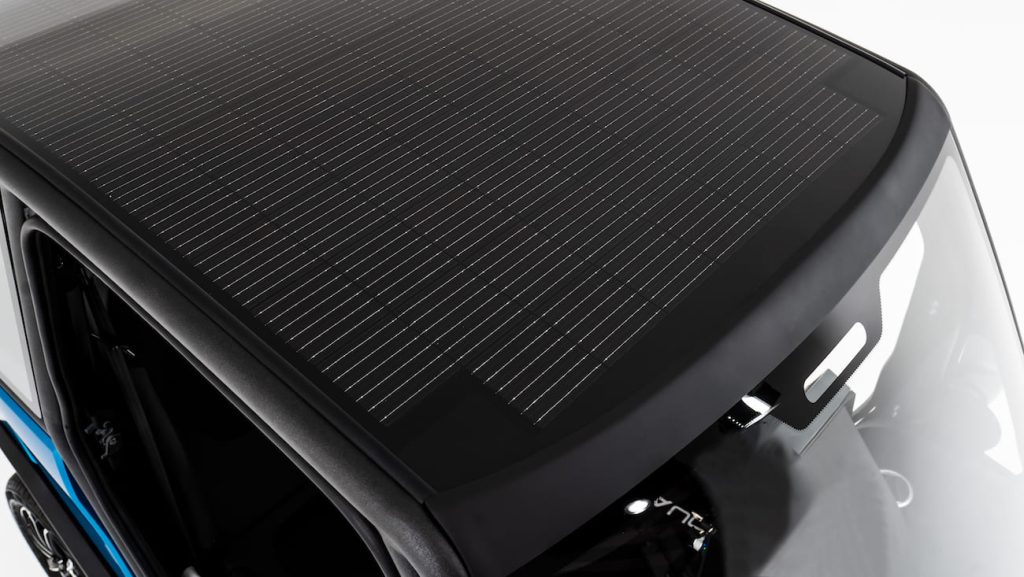
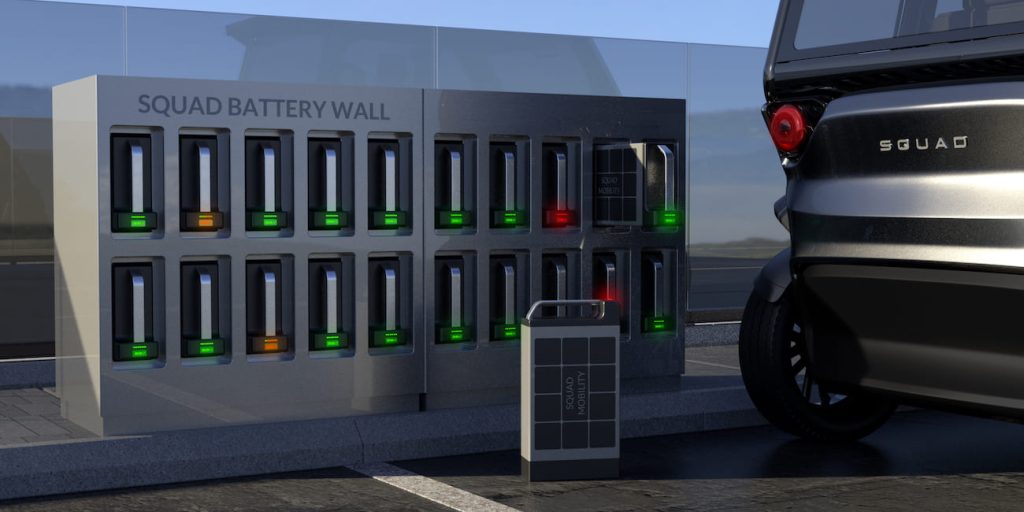
Compared to the European market where quadricycles and microcars are more commonly found in densely populated cities, the US LSV market is focused more on planned communities, event centers, and other campus-style areas.
As Squad Mobility’s CEO Robert Hoevers explained, “We are seeing a tremendous interest from the United States, specifically for markets such as golf cart communities, (corporate) campuses, sharing platforms, hotels and resorts, amusement parks and inner-city services.”
According to the company, the vehicle will be available in the US in 2025 starting at US $6,250 before tax, and can already be pre-ordered. No down payment is necessary for pre-orders outside of Europe.
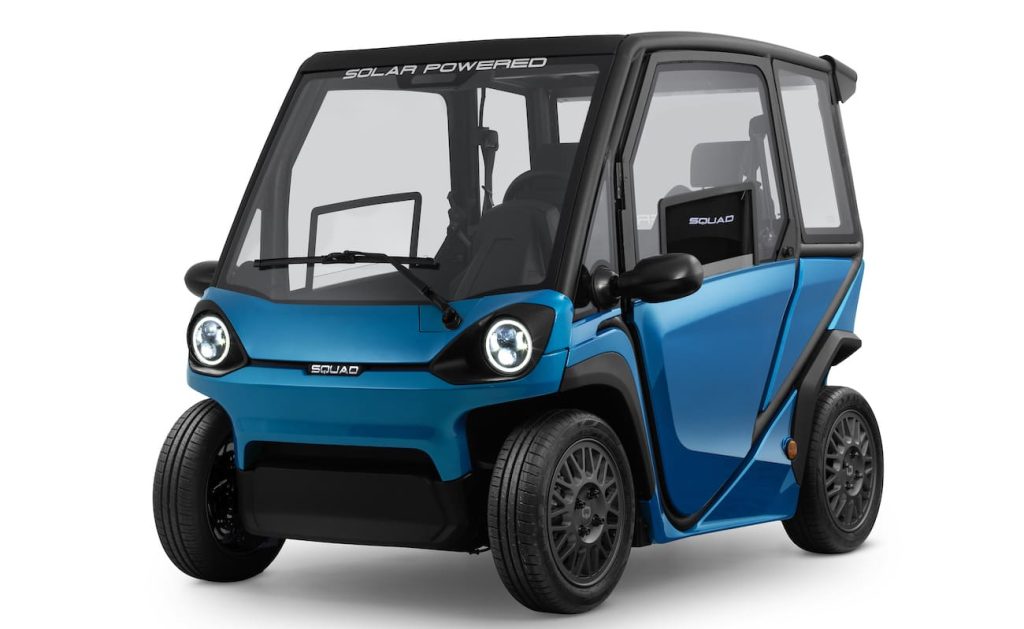
Electric microcars, mostly falling under the category of LSVs in the US, are a small but growing niche in the larger automotive space.
Earlier this year we tested a few Wink Motors LSVs in New York City to see how a solar-powered microcar could handle a major US metropolis. While the experience can take some getting used to, these smaller vehicles can usually maintain city speeds (especially in areas like NYC where traffic rarely reaches 25 mph), yet are easier to maneuver and park.
Electrek’s Take
I love a good microcar, and this definitely counts. Adding in solar is the cherry on top. Sure, you can call it a fancy golf cart. But no one who drives one of these is going to care what the heck you think about it. People who care about that kind of stuff already have lifted trucks and exhaust mods. People who just want a vehicle to do what they need it to do… end up with weird little electric mini-trucks like mine. Or perhaps a mini-solar-car like this thing.
As much as I love what Squad Mobility is doing though, I’ll be amazed if they can actually sell this for US $6,250. Consider that a run-of-the-mill golf cart costs closer to $9,000 with a plastic windshield and old-school batteries that you need a tool kit and half an hour to access. Coming in hot with a slick-looking street-legal vehicle featuring swappable batteries for 30% less cash… is going to be a tall order.
But hey, prove me wrong. Get it done, Solar Mobility, and I’ll sing your praises from the mountaintops. Which is exactly where I drove the last electric microcar I borrowed.
FTC: We use income earning auto affiliate links. More.





Comments